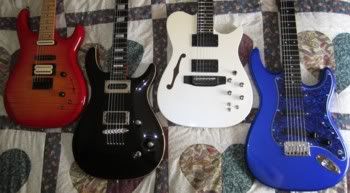One of the crane drivers decided to have a heart attack in the cab of the forward crane which is about 100 feet above deck level.
I had to rush to the scene and stabilise him in a very cramped area, then supervise his evacuation by lifting gear and stretcher. Not much fun at all, and we were all knackered at the end of it.
Still, it all went very professionally, and we were able to get him back to the sick bay where I was able to thrombolyse him and prepare him for med rescue.
He is now in hospital and it looks like he is going to be ok.
He suffered an anterior Myocardial Infarction (which is what I thought when I did a 12 lead ecg on him in the sickbay).
The key here was being able to give him antithrombolytic drugs (in this case Tenectaplase) onboard soon after the event. This means that any damage to the myocardium has been minimised, and (fingers crossed) he will be eventually able to resume his career offshore instead of being effectively disabled.
The guys in the ERT (Emergency Response team) were magnificent and made my job that little bit easier
Here are a couple of photos which one of the Control Room team took from a distance (I'm the one in the blue coveralls)








